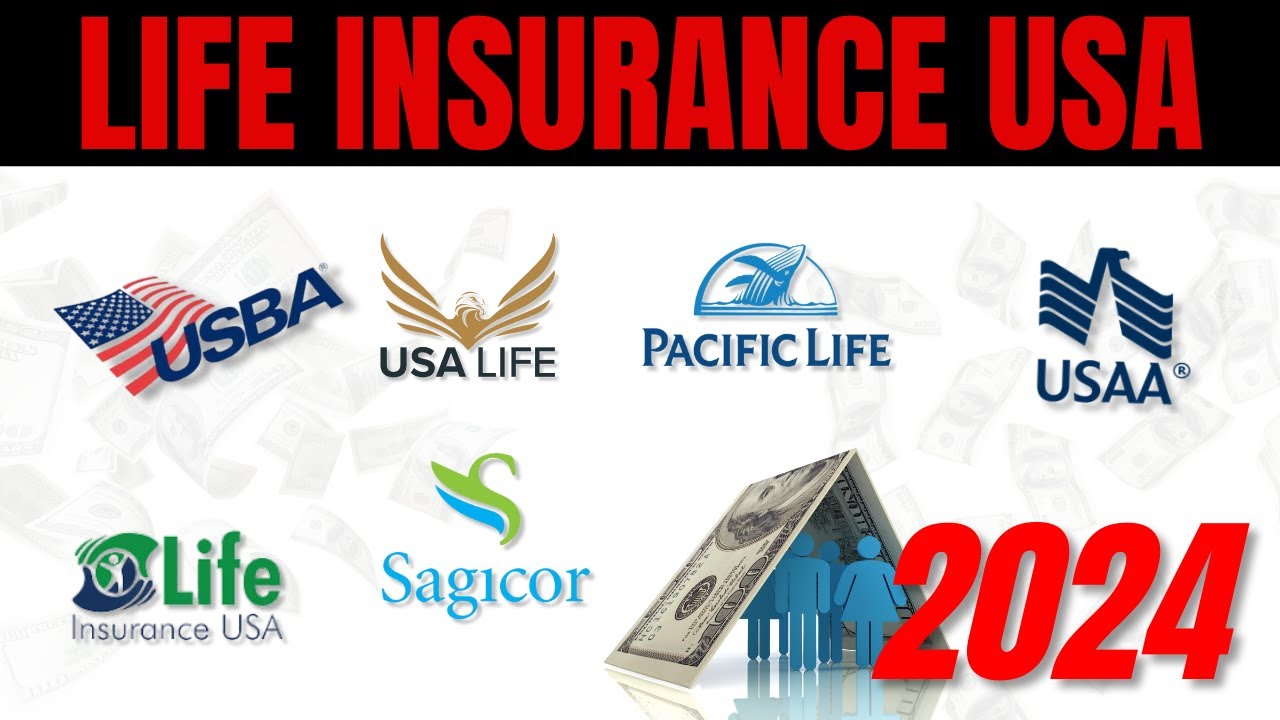Car Insurance and Accidents
Every driver knows there’s always that sinking feeling when you hear the screech of tires or the sickening thud of metal against metal. Nobody wants to be in a car accident, but the reality is that they can and do happen. Car insurance is a safety net that protects your finances from the often astronomical costs associated with accidents.
Understanding Car Insurance Coverage
Car insurance policies vary widely, so it’s essential to understand what your policy covers and what it doesn’t. Most policies include liability coverage, which pays for damages or injuries caused to others in an accident that you’re at fault for. Collision coverage, on the other hand, covers repairs or replacement of your own vehicle, regardless of who’s at fault. Comprehensive coverage provides protection against theft, vandalism, and other non-collision-related events. Choosing the right coverage levels for your needs is crucial to ensure adequate financial protection without overpaying for unnecessary coverage.
Navigating the Claims Process
In the unfortunate event of an accident, knowing how to navigate the insurance claims process can make all the difference. First and foremost, stay calm and prioritize safety for yourself and others involved. Exchange information with the other driver(s), including names, contact information, insurance details, and license numbers. Then, contact your insurance company to report the accident promptly. They will guide you through the claims process, including assessing damage, determining fault, and arranging for repairs or compensation.
Preventing Accidents: A Shared Responsibility
While car insurance provides financial protection, it’s also crucial to do everything you can to prevent accidents from happening in the first place. Obey traffic laws, avoid distractions while driving, and maintain your vehicle in good condition. Remember, safe driving is not just about protecting yourself but also about protecting others sharing the road with you.
Car Insurance and Accidents: A Guide to Understanding Your Coverage
In the wake of a car accident, understanding your insurance coverage can be a lifeline. With various types of policies available, knowing what you’re covered for is crucial. Let’s delve into the world of car insurance and accidents to ensure you’re protected when the unexpected occurs.
Types of Car Insurance Coverage
The type of car insurance coverage you choose will dictate the level of protection you receive in the event of an accident. Here are the main types:
- Liability Coverage: This covers bodily injury and property damage caused to others in an accident you’re at fault for.
- Collision Coverage: This covers damage to your own vehicle regardless of who’s at fault.
- Comprehensive Coverage: This provides broader protection, covering damage from non-collision events like theft, vandalism, and natural disasters.
- Uninsured/Underinsured Motorist Coverage: This protects you from drivers who don’t have insurance or have inadequate coverage.
- Personal Injury Protection (PIP): This covers medical expenses and lost wages for you and your passengers, regardless of who’s at fault.
Determining Your Coverage Needs
Choosing the right coverage for your needs is essential. Factors to consider include:
- The value of your vehicle
- The amount of risk you’re willing to take
- Your financial situation
- State laws and regulations
It’s advisable to consult with an insurance agent who can help you assess your coverage needs and recommend the best policy for you.
Filing a Claim After an Accident
In the unfortunate event of a car accident, it’s crucial to act swiftly and correctly. Here are the steps to follow:
- Stay Calm and Check for Injuries: Ensure everyone involved is safe and seek medical attention if necessary.
- Exchange Information: Get the names, addresses, phone numbers, and insurance information of all drivers and witnesses.
- Document the Scene: Take pictures of the damage, injuries, and surrounding area.
- Contact Your Insurance Company: Report the accident to your insurer as soon as possible.
- File a Police Report: This is especially important if there’s significant damage or injury.
Understanding your car insurance coverage and how it applies to accidents is vital. By making informed decisions and following the proper steps after an incident, you can ensure you’re protected and compensated fairly.
Car Insurance and Accidents: A Comprehensive Guide
Car insurance is a must-have if you own a car. It can help protect you financially if you are involved in an accident. But before you can make a claim, you need to understand your policy. That’s where this article comes in. We’ll walk you through everything you need to know about car insurance and accidents, from understanding your policy to filing a claim.
Understanding Your Policy
The first step to understanding your car insurance policy is to read it. This may seem like a daunting task, but it’s important to know what you’re covered for and what you’re not. Your policy will outline your coverage limits, which are the maximum amount of money your insurer will pay for each type of claim. It will also list your deductibles, which are the amount of money you have to pay out of pocket before your insurance kicks in. Some common types of car insurance coverage include:
- Liability coverage: This coverage pays for damages to other people or their property if you are at fault for an accident.
- Collision coverage: This coverage pays for damages to your own car if you are involved in an accident, regardless of who is at fault.
- Comprehensive coverage: This coverage pays for damages to your car that are not caused by a collision, such as theft, vandalism, or fire.
In addition to understanding your coverage limits, it’s also important to know your exclusions. These are the situations in which your insurance will not cover you. Common exclusions include:
- Intentional acts: Your insurance will not cover you if you intentionally cause damage to your car or someone else’s property.
- Illegal activities: Your insurance will not cover you if you are involved in an accident while committing a crime.
- Racing: Your insurance will not cover you if you are involved in a race.
If you have any questions about your policy, be sure to contact your insurance company. They can help you understand what you’re covered for and what you’re not.
Filing a Claim
If you’re involved in an accident, it’s important to file a claim with your insurance company as soon as possible. The sooner you file a claim, the sooner you can start the process of getting your car repaired or replaced. To file a claim, you will need to provide your insurance company with the following information:
- Your name, address, and phone number
- Your policy number
- The date, time, and location of the accident
- The name and contact information of the other driver(s) involved in the accident
- A description of the accident
Your insurance company will then investigate your claim and determine how much money you are entitled to.
Getting Help
If you need help understanding your car insurance policy or filing a claim, there are a number of resources available to you. You can contact your insurance company directly, or you can reach out to an independent insurance agent. You can also find a lot of helpful information online.
Car insurance is a complex topic, but it’s important to understand if you own a car. By following the tips in this article, you can make sure that you’re protected in the event of an accident.
Car Insurance and Accidents: A Comprehensive Guide
Anyone who gets behind the wheel of a car is exposed to the possibility of an accident. If you’re involved in a collision, being prepared is half the battle. Having car insurance is essential for navigating the aftermath. This guide will provide you with all the information you need to know about car insurance and accidents, from filing a claim to understanding your coverage.
Filing a Claim After an Accident
In the event of an accident, prompt reporting and accurate documentation are key to ensuring a smooth claims process. Here’s how to file a claim:
-
Stay Calm: Accidents are stressful, but staying calm will help you respond effectively.
-
Call the Police: If there are injuries or property damage, call the police immediately to file an accident report.
-
Document the Scene: Take pictures of the damage, exchange information with other drivers, and gather witness statements if possible.
-
Contact Your Insurance Company: Inform your insurance company about the accident promptly. Providing detailed information and documentation will help them process your claim efficiently.
What Happens Next?
Once you’ve filed a claim, your insurance company will investigate the accident, assess damages, and determine the payout. You may be contacted by an adjuster to provide additional information or schedule repairs. Keep in mind that insurance companies can take time to process claims, so patience is key. By following these steps, you can ensure a smoother claims process and protect your rights after an accident.
Car Insurance and Accidents: A Guide to Liability
Driving is a common part of our daily lives, but it can also be dangerous. Accidents happen every day, and they can often lead to injuries, property damage, and even death. That’s why it’s important to have car insurance. Car insurance can help you pay for the costs of an accident, regardless of who is at fault.
Determining Liability
When an accident happens, the first step is to determine who is liable. This is not always an easy task, as there can be multiple factors to consider. Some of the factors that insurance companies use to determine liability include fault, negligence, and comparative fault laws.
Fault
Fault is a legal term that refers to the responsibility for an accident. In most states, the driver who is found to be at fault for an accident is liable for the damages. This means that they are responsible for paying for the costs of the other driver’s injuries, property damage, and other expenses.
Negligence
Negligence is a legal term that refers to the failure to exercise reasonable care. In other words, negligence is when someone does something that a reasonable person would not have done, or fails to do something that a reasonable person would have done. For example, driving while intoxicated or speeding could be considered negligent behavior.
Comparative Fault Laws
Comparative fault laws are laws that allow multiple parties to be found liable for an accident. Under comparative fault laws, the liability is divided among the parties based on their degree of fault. For example, if one driver is found to be 75% at fault for an accident and the other driver is found to be 25% at fault, the first driver would be liable for 75% of the costs of the accident and the second driver would be liable for 25% of the costs.
Car Insurance and Accidents: A Guide to Negotiating with Insurance Companies
When you’re dealing with a car accident, the last thing you want is to have to haggle with your insurance company. However, knowing how to negotiate with insurance companies can help you get the best possible settlement for your claim.
Understanding Your Policy
The first step to negotiating with your insurance company is to understand your policy. This means knowing what your coverage is, what your deductible is, and what your limits are. You should also be familiar with the process for filing a claim. If you’re not sure about something, don’t be afraid to ask your insurance agent to explain it to you.
Documenting Your Damages
After you’ve filed a claim, you’ll need to provide the insurance company with documentation of your damages. This may include photos of the damage to your car, medical records, and repair estimates. The more documentation you have, the stronger your case will be.
Negotiating Your Settlement
Once the insurance company has reviewed your documentation, they will make you an offer for a settlement. This offer may not be what you were hoping for, but it’s a starting point for negotiation.
When negotiating with the insurance company, it’s important to be prepared to compromise. You may not get everything you want, but you should be able to get a fair settlement that covers your damages.
Getting Help
If you’re not comfortable negotiating with the insurance company on your own, you can get help from an attorney. An attorney can help you understand your policy, negotiate with the insurance company, and file a lawsuit if necessary.
Negotiating with Insurance Companies
When you file an insurance claim, you are essentially entering into a negotiation with your insurance company. The goal of this negotiation is to get the largest possible settlement for your claim.
There are several things you can do to improve your chances of getting a favorable settlement. Here are a few tips:
- Be prepared to negotiate: Before you even start talking to the insurance company, you should have a good understanding of your policy and your claim. This will help you to make informed decisions and to avoid being taken advantage of.
- Document your damages: The more documentation you have to support your claim, the better. This may include photos of the damage to your car, medical records, and repair estimates.
- Start high: When you negotiate with the insurance company, it’s always a good idea to start high. This will give you some room to compromise and still end up with a fair settlement.
- Be willing to compromise: Don’t expect to get everything you want when you negotiate with the insurance company. Be willing to compromise and meet them halfway.
- Don’t be afraid to walk away: If the insurance company is not willing to give you a fair settlement, don’t be afraid to walk away. You can always file a lawsuit if necessary.
- Negotiating with Insurance Companies
Negotiating with an insurance company can be similar to playing a game of chess. You need to be strategic and think ahead. You also need to be patient and persistent.
Here are some additional tips for negotiating with insurance companies:
- Be polite and respectful: Even though you are negotiating with the insurance company, it’s important to be polite and respectful. This will help to build rapport and make the negotiation process more pleasant.
- Be prepared to provide evidence: The insurance company will want to see evidence to support your claim. Be prepared to provide photos, medical records, and repair estimates.
- Don’t be afraid to ask questions: If you don’t understand something, don’t be afraid to ask questions. The insurance company is there to help you, so take advantage of their expertise.
- Be willing to compromise: Don’t expect to get everything you want when you negotiate with the insurance company. Be willing to compromise and meet them halfway.
- Don’t give up: If the insurance company is not willing to give you a fair settlement, don’t give up. You can always file a lawsuit if necessary.
Car Insurance and Accidents: Everything You Need to Know
When it comes to protecting yourself and your loved ones on the road, car insurance is a must-have. However, navigating the world of insurance can be tricky, especially when an accident strikes. In this comprehensive guide, we’ll delve into all aspects of car insurance and accidents, empowering you with the knowledge you need to make informed decisions.
Understanding Car Insurance Coverage
Car insurance policies typically include various types of coverage, each serving a specific purpose. Liability coverage protects you in case you’re at fault in an accident, while collision coverage repairs or replaces your vehicle if it’s damaged. Comprehensive coverage safeguards your car from non-collision incidents like theft, vandalism, and weather-related events.
Filing an Insurance Claim
In the unfortunate event of an accident, filing an insurance claim is crucial. Contact your insurance company promptly and provide detailed information about the incident, including the time, location, and extent of damage. Your insurer will then assess your claim and determine the appropriate compensation.
Disputes and Hiring an Attorney
In some cases, disputes may arise between you and your insurance company. If negotiations break down, hiring an attorney can provide invaluable legal guidance and support. An experienced attorney can represent your interests, interpret complex legal jargon, and help you navigate the insurance process effectively.
Understanding Fault and Negligence
In car accident cases, determining fault is paramount. Negligence refers to a person’s failure to exercise reasonable care, and it plays a key role in establishing liability. If you can prove that the other driver was negligent, you may be entitled to compensation for damages.
Seeking Medical Attention
After an accident, seeking medical attention is crucial, even if you don’t feel any immediate pain. Some injuries may take time to manifest, and prompt medical care can help identify and treat potential health issues early on. Don’t hesitate to seek professional medical attention to ensure your well-being.
Stay Informed
The world of car insurance and accidents is constantly evolving, so it’s essential to stay informed about the latest laws, regulations, and industry updates. By keeping abreast of changes, you can avoid costly surprises and protect your rights as a driver. Remember, knowledge is power, and it’s your key to navigating the road ahead with confidence.




Leave a Reply